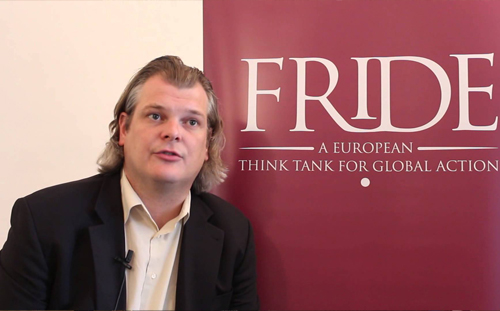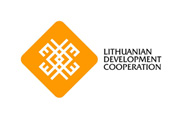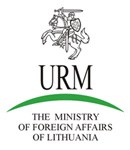
Jos Boonstra heads the Eastern Europe, Caucasus and Central Asia programme at FRIDE, a European think-tank based in Madrid, Spain. He has recently penned a policy brief titled The South Caucasus concert: Each playing its own tune. The working paper appeared under the European Union’s CASCADE project, which unites several European and local think-tanks to explore linkages between security and democracy in the Caucasus.
The working paper calls for closer EU involvement in the region, claiming the Europeans should start by perceiving the region as an integral part of Europe. The paper draws on several key “roles” Europe has in the region in comparison with Russia, Turkey, the United States and Iran.
The Clarion spoke to Jos Boonstra to discuss his insights.
You write that the EU does not need to come up with a new strategy for South Caucasus, but rather start simply considering the region as part of Europe. Could you please elaborate what this would mean in practical terms for the EU?
It means a change in thinking. Instead of regarding the South Caucasus as a foreign region we should understand it is as European as Ireland or Italy. With respect to the EU institutions this will mean more involvement by different departments (DG’s) that deal with home affairs. If Eastern Europe (including the South Caucasus) were to be regarded by the EU less as ‘foreign’ and more like Norway or Switzerland, the question of membership could become less pressing for both these countries and the EU.
Seeing Eastern Europe as ‘Europe’ also means the EU will need to encourage its members to be more active in their relations with Georgia, Moldova and others. Small groups of EU states could lead in specific areas of cooperation with Eastern partners. This might also help member states to get closely acquainted with these neighbouring states. Reactions on Ukraine developments are a good reminder that the governments and civil society organisations in Western Europe will need to learn to talk with the Eastern Partnership countries not only about them.
You distinguish the roles of the regional players as value-preaching “vicars”, peacekeeping “soldiers”, mediating “diplomats” and business-driven “merchants”. In which of these roles should EU care the most about South Caucasus? And to what extent is this role central to the European identity?
Trade is the EU’s strong point in almost all engagements with non-EU countries around the world. So the EU is definitely a ‘merchant’. Even though the economic significance of the South Caucasus countries to the EU is extremely small, the EU still is the first trade partner of Armenia, Azerbaijan and Georgia.
Second – but more importantly in the EU’s relation with neighbours – is the promotion of democracy and human rights. It is essential to the EU’s interest that its neighbours respect human rights and evolve (in their own way) as democracies; only then can these neighbours be considered as stable and trustworthy partners – also in trade. The EU is thus a ‘vicar’ preaching democracy, not only because it believes it would serve neighbouring countries well, but also out of self-interest.
The EU cannot be regarded a ‘soldier’ in its neighbourhood as the EU’s defence cooperation with South Caucasus is almost non-existent. The EU’s role in South Caucasus security matters is modest. Russia but also the United States play more active and influential roles in this respect.
A ‘diplomat’ Europe partially is already – for example through the Geneva talks concerning Abkhazia and South Ossetia. Probably Europe’s role in in conflict resolution and in encouraging regional cooperation could grow. But still, Brussels will be slower in acting then Ankara and have less leverage then Moscow.
Hence the EU could probably best be characterised as a ‘Merchant-Vicar’.
You treat the EU as a single actor for the purposes of your policy brief, while observing that the involvement of both Turkey and US is currently limited. Which major EU country does or should care about South Caucasus as a part of Europe, in your mind, and why?
There should not be one country caring or acting primarily about relations with the South Caucasus. It is easy to point one’s finger at Germany – the biggest and economically most powerful state, with an active interest in Eastern Europe. But then, it is almost always ‘Germany’ these days. France played an active peace-broker role in the Georgia-Russia war of 2008 and is a member of the OSCE Minsk format concerning Nagorno-Karabakh. Then there are the Nordic countries that actively support democratic reform through funding and programming. The Central European and Baltic EU members that take an active interest in their Eastern neighbours and have a reform story to share.
But even a country that has more modest interests and contacts with the South Caucasus such as Spain, is taking an increased interest in matters of trade and cooperation. This might be partially as a result of the activism spurred by the embassies of South Caucasus countries in Madrid.

 RSS
RSS Mobile
Mobile Twitter
Twitter Facebook
Facebook



